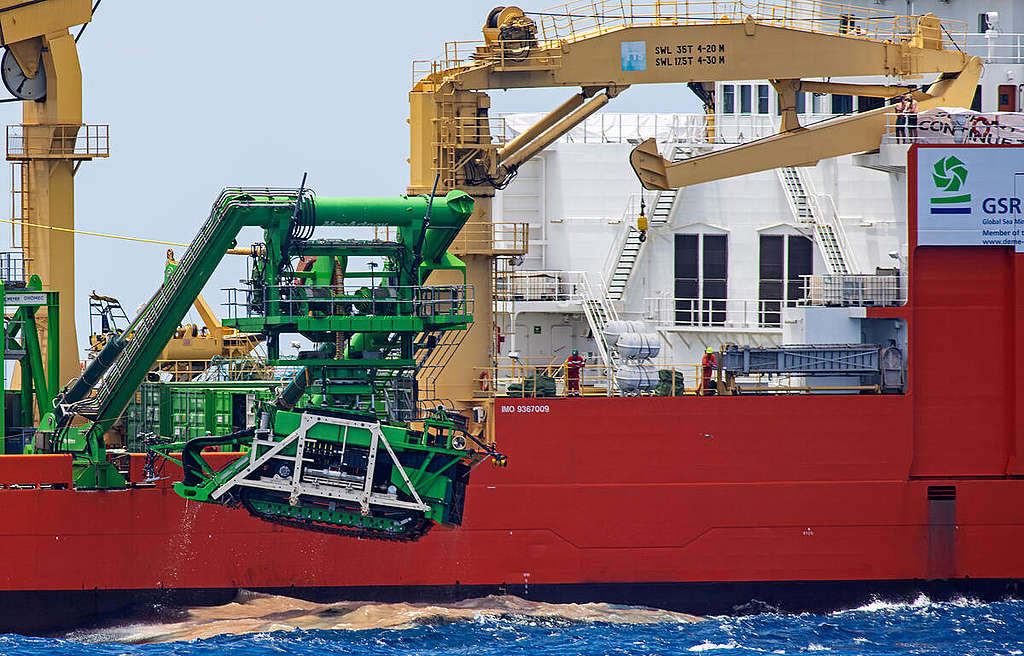An international meeting in Jamaica to negotiate rules over deep-sea mining has ended with no green light to start industrial-scale mining and with an 11th-hour agreement to hold formal discussions next year on the protection of the marine environment.
The agreement ended intense week-long negotiations at the International Seabed Authority (ISA), an intergovernmental body based in Kingston that regulates sea-bed extraction, over a proposal spearheaded by Chile, France and Costa Rica and backed by a dozen countries to discuss a precautionary pause on deep-sea mining to ensure the protection of the marine environment.
China, which is keen to see mining go ahead, had blocked the motion for a discussion all week, but finally agreed to allow it on the agenda in 2024.
Gina Guillén Grillo, Costa Rica’s representative to the ISA, said it was “very disappointing that one country by themselves can kidnap the assembly”, where all member states have a voice, and “hoped the objecting country will honour their word” to allow discussion next year.
“We believe the protection of the marine environment is such a huge part of our obligation as member states,” she said.
Environmentalists welcomed the compromise as an “open door” to a proper discussion by the ISA assembly, which comprises 168 member states and the EU, on whether mining should go ahead at all. Overall, they said, “important strides forward” had been made towards the protection of the marine environment.
It was a crucial, three-week-long meeting of the ISA, a UN-affiliated body, which was under pressure to finalise rules governing mining by this month.
The ISA’s 36-member council, the body that oversees rules and regulations, decided it needed more time to finalise rules. Last week, in a decision that effectively delayed the start of any mining operations, it said it would work “with a view” to adopting regulations in 2025. The council did not decide how to consider any application requests that might arrive in the meantime, however, prompting criticism that a legal loophole remained open. In March, the council said exploitation should not be agreed until a mining code was agreed.
In a speech last Wednesday, the French secretary of state for seas, Hervé Berville, reinforced France’s call for a ban on deep-sea mining: “We cannot and must not embark on a new industrial activity when we are not able to fully measure its consequences and therefore risk irreversible damage to our marine ecosystems.”
More than 20 countries in the assembly have called for a pause or ban. They argue that not enough is known about mining’s impact on deep-sea ecosystems to proceed. Brazil has called for a pause of 10 years, and several other countries have resisted.
Nauru’s president, Russ Kun, expressed disappointment that the ISA had not yet adopted regulations.
He told delegates: “We have a window of opportunity to support the development of a sector that Nauru considers has the potential to help accelerate our energy transition to combat climate change.”
Advocates for deep-sea mining say it is needed to meet the increasing demand for metals such as cobalt and nickel that are used in batteries powering the green transition from fossil fuels.
Louisa Casson, the global project leader for Greenpeace’s campaign to stop deep-sea mining, said: “These last three weeks have seen important strides forward for ocean protection. Industry really thought this was the moment when mining would go ahead.”
Sofia Tsenikli, of the Deep Sea Conservation Coalition, said: “What is clear is that the growing opposition to deep-sea mining has burst the ISA bubble, and pro-mining interests now know business as usual is over.
“The need to protect the ocean from the impacts of mining took centre stage inside and outside of the ISA during these weeks, despite efforts to silence the debate.”
Over the past month, the UN high commissioner for human rights, 37 global financial institutions, seafood groups, scientists and Indigenous groups have called for a halt to deep-sea mining.
SOURCE: THE GUARDIAN/PACNEWS














